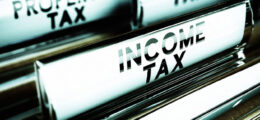Topics:
January 7, 2022
NFIB Washington Legislative Update | Pre-Session Glance
State Director Patrick Connor reports on the small-business agenda from the State Capitol
The Washington State Legislature will convene Monday, January 10, for its 2022 regular session. It is scheduled to adjourn on or before March 10, 2022. This will be another virtual session. No public access to the Capitol or legislative offices will be allowed, at least not initially. Legislative leaders plan to review the virtual status every two weeks. The first week’s committee hearing schedule has been posted. The public can sign-up online to testify, or to have their position on bills noted for the record. Here are the most pressing bills NFIB will be watching during Week 1.Health Care
House Bill 1688 and Senate Bill 5618, Balance billing – These companion bills would harmonize state and federal balance billing laws. Basically, the legislation seeks to limit “surprise balance billing,” when consumers are billed for the difference between what an out-of-network medical provider charges and what the patient’s insurance company would pay one of its in-network providers. Existing state law and the new federal law would better protect consumers from these types of charges, particularly when a patient is unable to consent or select an in-network provider instead. For instance, a patient may have chosen to have surgery at an in-network hospital, but was unable to choose the anesthesiologist. These laws require the patient’s insurer to pay the out-of-network provider a reasonable fee, but generally not the full out-of-network cost. HB 1688 / SB 5618 would address differences between the existing state and new federal law. HB 1688 is scheduled for a public hearing January 12. NFIB has already signed-in supporting the bill.Regulatory
- HB 1614 and SB 5533, Online marketplaces/theft – These bills would require online marketplaces, like Amazon, Ebay, and Etsy, to obtain bank account and other information not just from individuals selling goods through their platform, but from legitimate businesses as well. NFIB has concerns with this approach. First, we question the need for this legislation. Online marketplaces already have the ability to impose and enforce rules and requirements for using their services. Next, providing bank account information seems unnecessary, at least when it comes to businesses licensed by the state or its municipalities. Providing a Uniform Business Identifier or business license number, and proof of identity, should be more than sufficient for small businesses to access these platforms. Again, online marketplaces already have the right to request this information. HB 1614 has been scheduled for a public hearing on January 10 and executive action (amendment and approval) on January 12.
- HB 1810, Right to Repair – The bill would require manufacturers of certain consumer electronics, like computers, tablets, and cell phones to allow independent repair shops and individual device owners to purchase the tools, manuals, parts, instructions, etc. needed to repair these devices. This version is the result of negotiations between stakeholders. Based on our state ballot results, and work NFIB has already done on this topic, we expect to support the bill during its public hearing on January 13.
Tax & Fiscal
- HB 1732 and HB 1733, WA Cares delay and exemptions – As promised, House Democrats are moving swiftly to delay the WA Cares long-term services and supports payroll tax and benefit program. HB 1732 would provide an 18-month implementation delay, and allow workers with less than 10 years until retirement to partially vest in the system. HB 1733 would allow certain disabled veterans, their spouses, military spouses, foreign workers, and individuals permanently residing in other states who work in Washington to apply for an exemption from the program. NFIB has signed in to support HB 1732. We are monitoring HB 1733 at this time. Both bills will be heard in the House Appropriations Committee on January 11, and are scheduled for executive action January 13. In a Senate Democrat briefing January 7, Majority Leader Andy Billig said he anticipates the bills will be heard in committee during Week 3, and hopes to pass them in Week 4 … assuming the bills pass the House in Week 2.
- HB 1819 and HJR 4208, Business personal property tax threshold – House Joint Resolution 4208 would send the voters a proposed state constitutional amendment exempting the first $100,000 of value for personal property used by businesses. An existing $15,000 exemption is available only to sole proprietors who are also head of family, a widow or widower, or aged 65 who have resided in the state for at least the last 10 consecutive years. HB 1819 is the implementing statute that would take effect upon passage of the constitutional amendment. While NFIB supports the concept, we are still awaiting the Department of Revenue’s fiscal estimate that should show potential revenue loss to counties, and any increase in the personal property tax rate that would result from expanding the exemption to all businesses in the state. The bill has not yet been scheduled for a hearing.
- SB 5557, B&O tax increase to offset a B&O reduction for startups – NFIB plans to oppose SB 5557 when it is heard in the Senate Business, Financial Services & Trade Committee on January 13. In addition to increasing the B&O on all existing businesses – by an as yet unknown amount – the bill’s intent section calls for it to remain in place until a corporate net income tax is imposed by the state. It should come as no surprise that NFIB would oppose a B&O tax increase, or have concerns about imposing an income tax on business owners or other taxpayers.

State:
Get to know NFIB
NFIB is a member-driven organization advocating on behalf of small and independent businesses nationwide.
Related Articles

April 15, 2025
NFIB Releases Report Detailing Benefits of 20% Small Business T…
672,000+ small businesses in Washington could face significantly higher tax…
Read More


April 14, 2025
Watch Now: Small Business Health Insurance Cost Tips
NFIB Pennsylvania’s Latest 5 Minute Friday Video
Read More


April 14, 2025
Prevailing Wage Proposals Clear Illinois House
Mandates that increases costs and unnecessary red tape passes in the Illino…
Read More


April 14, 2025
“Right to Sit” Bill Fails to Advance in Illinois Legislatur…
Proposed mandate opposed by NFIB failed to advance in the Illinois House
Read More







